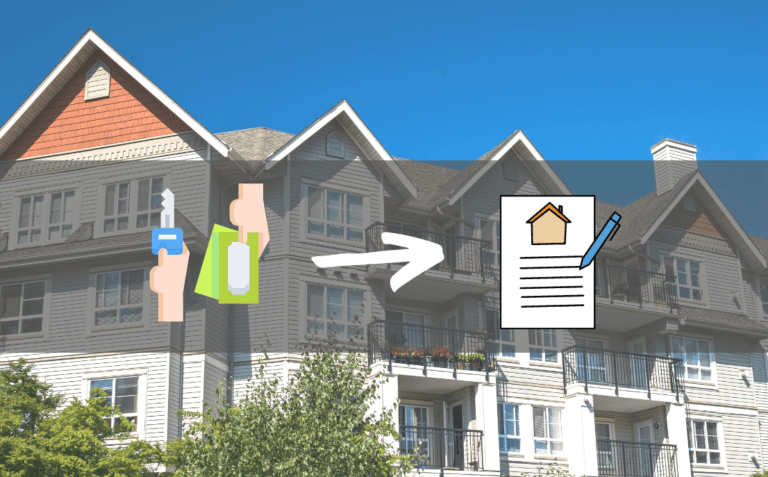
For those who have properties in Los Angeles or thinking of investing in Los Angeles, there is a myriad of ever-changing laws which make knowledge and experience paramount to being successful in this market.
CSQ Properties invests in Los Angeles and in other states and we’ve learned that having a good legal team is critical to mitigating risk and ensuring success.
We’ve used Dennis P. Block for Los Angeles evictions and wanted to share some of his Q&A from California Apartment Association.
E N J O Y ! ! !
QUESTION #1: My property is subject to the Los Angeles City Rent Stabilization Ordinance. I read that you can proceed with evictions if tenants did not pay security deposit equal to two months’ rent. My tenant has a security deposit equal to one month’s rent. The deposit has never been increased. Is it permissible to increase the deposit to equal two months’ rent?
Answer: Under the City’s Rent Stabilization Ordinance, you can only increase the security deposit to the same percentage as the rent increase. Currently, there is still a moratorium prohibiting rent increases until February 1, 2024. Based on this, you would not be able to increase the security deposit.
QUESTION #2: My rental listing indicates that this is a “no pet” building. I recently had someone inquire about my rental, asking if we accept pets. I immediately told her about my building policy. She has now presented a letter from a licensed physician which indicates her need for an emotional support dog as she has a mental and an emotional disability. Am I required to show her the apartment?
Answer: You would be required to allow her to view the premises. If you do not, you would expose yourself to liability under both the California and Americans with Disabilities Act. Under a recent California law, there are specific requirements that a tenant must meet to qualify.
The following are now additional requirements that must be met:
- The health professional must hold a legitimate and active license. In the Emotional Support Animal (ESA) letter, they must include their license number, the effective date, their jurisdiction, and the type of professional license.
- The health professional must be licensed to provide professional services within the scope of the license, in the jurisdiction in which the documentation is provided.
- The health professional must establish a professional relationship with the patient at least 30 days before providing the ESA letter.
- The health professional must conduct a clinical evaluation of the client to assess their need for an emotional support pet.
QUESTION #3: Now that the moratorium is finally coming to an end in the City of Los Angeles, can I raise my rent as of April 1, 2023? My tenants have not had a rent increase since March 2022. With the cost-of-living increases, I am barely breaking even.
Answer: Although the moratorium will terminate as of April 1, 2023, you cannot increase the rent at least February 1, 2024. On this basis, the city is expecting landlords to go without a rent increase for four years. Within this same four-year period, every city employee has been, or will be given a pay increase. This is clearly a total abuse of income property owners
QUESTION #4: I have a unit that is subject to the Rent Stabilization Ordinance (RSO) for the City of Los Angeles. One of my tenants is far below the market value for this unit. I really like this tenant and he is agreeing to pay more rent, but I do not want to violate the ordinance. Is it possible that I have him sign a cash-for-keys agreement and then have him sign a new lease at a higher amount?

Answer: To be legal, the tenant would have to vacate the unit. Usually, this involves establishing a tenancy at another residence and then coming back to your property. If this is not done, the increase will be viewed as illegal and just an attempt to circumvent the rent control ordinance
QUESTION #5: We had a tenant who moved out on November 30, 2022, without any notice. Due to him not giving proper notice, are we legally able to charge him for an additional 30 days? My new tenants moved in on December 19, 2022.
Answer: A tenant must provide 30 days’ notice of their intention to vacate. If they do not provide you with advance notice, you may deduct 30 days of rent from the deposit. However, in this case, you leased the unit 19 days later. As such, you cannot obtain a “double recovery” by charging your former tenant the full 30 days.
QUESTION #6: A tenant residing in our LA City condo has a lease ending soon. Can we provide 30 days’ notice to vacate on the day the lease ends?

Answer: Unfortunately, there is still a moratorium in the City of Los Angeles where you cannot terminate on the basis that the lease expired.
QUESTION #7: Yesterday, I received a phone call from the guarantor on one of my lease agreements. The guarantor, who is the mother of one of the two tenants informed me that her daughter will no longer continue to live at the apartment. She went to state that the couple had a falling out and that she will be vacating in 30 days. I know that the remaining tenant will have a difficulty in paying the rent. Can I still hold the guarantor responsible if the ex-boyfriend ceases to pay?
Answer: If the premises were leased on a fixed term lease, the guarantor would only be responsible for the term of the lease. If the lease is currently month-to-month, the contractual responsibility of the guarantor would have terminated at the expiration of the lease. In the future, if you do have a guarantor on a lease, be sure that there is a provision that the guarantor is responsible until the unit has been totally vacated by all tenants, regardless of the lease term.
QUESTION #8: We have a tenant who cooked his pizza in the cardboard box inside the oven. This triggered a fire, and the sprinklers caused water damage to his unit and to adjoining units.He does not have insurance. Who is responsible to pay for all the damage that incurred? What notice should I serve him to ask him to vacate?

Answer: Assuming you can prove that he was the cause of the fire and damage, his conduct constituted nuisance and waste. Waste is a legal term which means any damage to real property by a tenant, which lessens the property value to the landlord. Clearly, your tenant would be responsible for all monetary damages that incurred. In addition, an eviction action could be brought based on this conduct. In this case, you could serve him a 3-day notice to quit and then proceed with an unlawful detainer action. A separate civil lawsuit would be required to recover the monetary damages.
And there you have it! I hope this article gave you some new ideas. I know it’s a long one, but if you made it this far, hopefully, you learned a few things. An investment in knowledge really is the best investment that you can make!
Dennis Block, of Dennis P. Block & Associates, can be reached for information on landlord/tenant law or evictions at any of the following offices: Los Angeles 323-938-2868, Encino 818-986-3147, Inglewood 310-673-2996, Long Beach 310-434-5000, Ventura 805-653-7264, Pasadena 626-798-1014, Orange 714-634-8232, San Diego 619-481-5423 OR by visiting www.evict123.com.
Now, you can also read Dennis Block on Twitter, www.twitter.com/dennisblock or text him at 818-570-1557.
“Landlord Tenant Radio Weekly Podcasts” can be heard at any time at www.EVICT123.com or download the app “EVICT123”.


